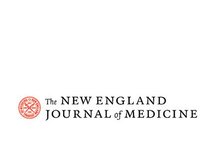
"This is a potentially significant issue, both for patients and the medical research community," he added.
The study, based on detailed information on over 80,000 clinical trials sponsored by the National Institutes of Health, other governmental agencies and private industry, found that 15 percent of the trials used criteria that explicitly excluded homosexual participants.
Trials with sexual function as an endpoint particularly excluded homosexuals.
The identified studies, which only included trials with sites in the United States, used terms like "erectile dysfunction," "couples" and "hypoactive."
Many trials were also found to exclude single men and women, even if they are heterosexuals.
Among the trials, those sponsored by industry, spread across several regions or conducted as Phase III trials -- randomized, controlled trials performed at several centers and among a large group of patients -- were more likely to exclude gays and lesbians, Egleston's study found.
In order to make sure they did not miss a general pattern of exclusionary language, the researchers also examined 1,019 studies identified by the search term "asthma." That search did not find any studies that excluded lesbians and gay men.
Egleston's study is published in Thursday's issue of The New England Journal of Medicine.
----------------------------------------------------------------------------
The study, based on detailed information on over 80,000 clinical trials sponsored by the National Institutes of Health, other governmental agencies and private industry, found that 15 percent of the trials used criteria that explicitly excluded homosexual participants.
Trials with sexual function as an endpoint particularly excluded homosexuals.
The identified studies, which only included trials with sites in the United States, used terms like "erectile dysfunction," "couples" and "hypoactive."
Many trials were also found to exclude single men and women, even if they are heterosexuals.
Among the trials, those sponsored by industry, spread across several regions or conducted as Phase III trials -- randomized, controlled trials performed at several centers and among a large group of patients -- were more likely to exclude gays and lesbians, Egleston's study found.
In order to make sure they did not miss a general pattern of exclusionary language, the researchers also examined 1,019 studies identified by the search term "asthma." That search did not find any studies that excluded lesbians and gay men.
Egleston's study is published in Thursday's issue of The New England Journal of Medicine.
----------------------------------------------------------------------------









 Home
Home Politics
Politics









